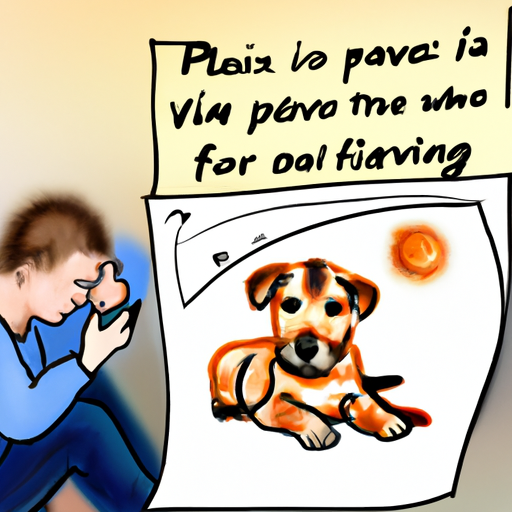What is Parvo?
As a caregiver, it’s crucial to understand the threats that might endanger your beloved canine companion. One such threat is the Parvovirus, often simply called Parvo. This highly contagious viral illness can wreak havoc on your dog’s health.
Parvo primarily affects puppies, but it’s not exclusive to them. Adult dogs can contract it too, especially if they have not been vaccinated or their immune system is weak. The virus targets rapidly dividing cells in your dog’s body, the most severe being those in the intestines.
How is Parvo Transmitted?
Parvo is transmitted in two ways:
- Direct contact: Your dog can contract the virus through direct contact with an infected dog. This includes sniffing, licking, or even just being in close proximity to the infected dog.
- Indirect contact: The virus can survive on objects like shoes, food bowls, or toys. If your dog comes into contact with these contaminated items, they can contract the virus.
The virus can also live in the soil for up to a year, making public parks and yards potential danger zones.
Symptoms of Parvo
If your dog contracts Parvo, you’ll likely notice some or all of the following symptoms:
- Severe, bloody diarrhea
- Lethargy
- Fever
- Vomiting
- Loss of appetite
- Rapid weight loss
If you notice any of these symptoms, it’s crucial to get your dog to a vet as soon as possible. Early detection can make a significant difference in the outcome.
Preventing Parvo
Preventing Parvo is better than dealing with the aftermath. Here are some steps you can take to protect your dog:
- Vaccination: Ensure your dog is vaccinated against Parvo. This is the most effective way to prevent the virus.
- Avoid high-risk areas: Until your puppy has received all their vaccinations, avoid areas with high dog traffic.
- Proper hygiene: Regularly clean and disinfect your dog’s living area. Remember, the virus can survive on surfaces, so regular cleaning is crucial.
Treatment for Parvo
There is no cure for Parvo. However, with aggressive supportive care, dogs can recover. This usually includes intravenous fluids to treat dehydration and antibiotics to fight off secondary bacterial infections. The survival rate with treatment is 68% to 92%, but the dog’s condition upon arrival at the clinic can affect this.
| Treatment | Description |
|---|---|
| Hospitalization | Dogs with Parvo often need to be hospitalized for treatment. |
| IV fluids | To combat dehydration caused by severe diarrhea and vomiting. |
| Antibiotics | To fight off secondary bacterial infections. |
Frequently Asked Questions
Q: Can humans get Parvo from dogs?
No, humans cannot contract Parvo from dogs. It’s a canine-specific virus.
Q: How long does Parvo last in a dog?
Without treatment, Parvo can last in a dog for several weeks. With treatment, symptoms can begin to improve within 2 to 3 days.
Q: Can older dogs get Parvo?
Yes. While it’s more common in puppies, any unvaccinated dog can contract Parvo.
Q: Is Parvo contagious to other dogs?
Yes, Parvo is highly contagious to other dogs.



